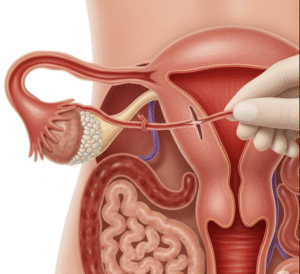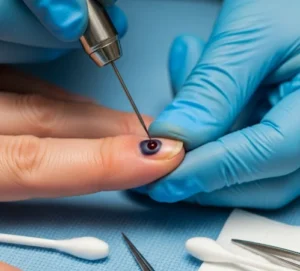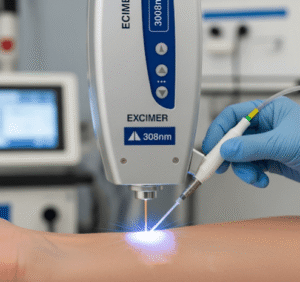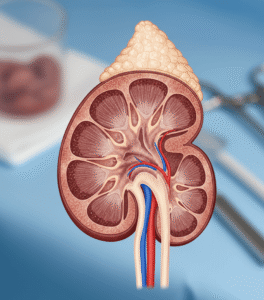Overview
Tonsil cancer is a type of head and neck malignancy that arises in the tonsillar tissues, most commonly the palatine tonsils. It is a form of oropharyngeal cancer and can affect swallowing, speech, and overall oral health. Risk factors include tobacco use, alcohol consumption, and human papillomavirus (HPV) infection. South Korea offers advanced diagnostic and treatment options for tonsil cancer, including precise imaging, minimally invasive surgery, robotic-assisted procedures, radiation therapy, and chemotherapy, ensuring comprehensive care and improved survival rates. Early detection and prompt treatment significantly enhance outcomes and reduce complications.
What is Tonsil Cancer?
Tonsil cancer refers to malignant growths originating in the epithelial tissues of the tonsils. These cancers are typically squamous cell carcinomas, accounting for the majority of cases. The disease can spread locally to surrounding tissues, including the base of the tongue, soft palate, and pharyngeal walls, and may metastasize to lymph nodes in the neck. Symptoms often develop gradually, making early diagnosis critical. South Korea’s head and neck oncology specialists use state-of-the-art diagnostic methods to identify tonsil cancer at early stages, enabling more effective and targeted treatment.
Symptoms
Tonsil cancer may present with a variety of symptoms, some of which are subtle in the early stages:
- Persistent sore throat: Often unilateral and resistant to conventional treatments
- Difficulty swallowing (dysphagia): Pain or obstruction when eating
- Ear pain (referred otalgia): Pain radiating to the ear on the affected side
- Visible lumps or mass in the tonsil: May be detected during oral examination
- Neck swelling: Due to enlarged or metastatic lymph nodes
- Ulceration or bleeding: In advanced cases, lesions may ulcerate or bleed
- Voice changes: Hoarseness or muffled voice if tumor affects surrounding structures
- Weight loss and fatigue: Associated with advanced disease or systemic involvement
Early recognition of these symptoms and prompt evaluation by an ENT specialist in Korea are essential for effective treatment.
Causes
The exact cause of tonsil cancer involves genetic, viral, and environmental factors:
- Human papillomavirus (HPV): HPV type 16 is strongly associated with tonsil cancer, particularly in non-smokers
- Tobacco use: Smoking cigarettes, cigars, or pipes increases risk
- Alcohol consumption: Heavy and chronic alcohol intake contributes to carcinogenesis
- Genetic predisposition: Family history of head and neck cancers may increase susceptibility
- Chronic irritation or inflammation: Recurrent infections or tonsillitis may contribute
- Environmental exposures: Workplace chemicals and pollutants may elevate risk
The interplay between HPV infection and lifestyle factors is particularly significant in South Korean populations, where public awareness and vaccination campaigns are increasingly important for prevention.
Risk Factors
Several factors can increase the likelihood of developing tonsil cancer:
- Age over 40, with peak incidence between 50–60 years
- Male gender, with higher prevalence compared to females
- Tobacco and alcohol use
- HPV infection, especially high-risk subtypes
- Weakened immune system due to chronic illness or medications
- Poor oral hygiene or chronic tonsillar infections
- Family history of head and neck cancers
Identifying these risk factors is crucial for early screening and preventive measures.
Complications
Untreated or advanced tonsil cancer can lead to serious complications:
- Local tissue invasion: Affecting the base of the tongue, soft palate, or pharyngeal walls
- Metastasis: Spread to cervical lymph nodes or distant organs
- Difficulty swallowing or breathing: Obstruction caused by tumor growth
- Speech and voice impairment: From involvement of surrounding structures
- Weight loss and malnutrition: Due to pain and difficulty eating
- Treatment-related complications: Side effects from surgery, radiation, or chemotherapy, including mucositis, dry mouth, and altered taste
Early detection and multidisciplinary management in Korea reduce these complications and improve overall prognosis.
Prevention
Preventive measures for tonsil cancer focus on lifestyle modifications, vaccination, and early screening:
- Avoid tobacco and limit alcohol consumption to reduce risk
- HPV vaccination: Recommended for both males and females to prevent virus-related cancers
- Maintain oral hygiene: Regular dental check-ups and cleaning
- Prompt evaluation of persistent throat symptoms: Especially unilateral sore throat or lumps
- Regular screening for high-risk individuals: Those with family history, HPV infection, or lifestyle risk factors
- Healthy lifestyle: Balanced diet, exercise, and immune system support
Public awareness campaigns and preventive strategies in Korea have increased early detection rates and reduced disease burden.
Treatment Options in Korea
South Korea provides state-of-the-art care for tonsil cancer, emphasizing early diagnosis, precision treatment, and supportive care:
Diagnosis:
- Comprehensive head and neck examination by ENT specialists
- Imaging studies such as CT, MRI, and PET scans to assess tumor size and metastasis
- Biopsy and histopathological analysis for definitive diagnosis
- HPV testing to guide prognosis and treatment decisions
- Endoscopic examination for tumor visualization and surgical planning
Medical Treatments:
- Surgery: Partial or total tonsillectomy, often with neck dissection if lymph nodes are involved
- Robotic-assisted surgery (TORS): Minimally invasive approach with precise tumor removal and reduced recovery time
- Radiation therapy: External beam or intensity-modulated radiation to target cancer cells
- Chemotherapy: Used in combination with radiation for advanced or recurrent cases
- Targeted therapy: For select cases based on genetic and molecular profiling
Rehabilitation and Support:
- Speech and swallowing therapy to restore function post-treatment
- Nutritional support to address weight loss and maintain health
- Pain management and mucositis care during therapy
- Psychological counseling to cope with stress, anxiety, and social challenges
- Regular follow-up and imaging to monitor recurrence and long-term outcomes
Korean medical centers provide a multidisciplinary approach involving ENT surgeons, oncologists, radiologists, nutritionists, and therapists, ensuring comprehensive care and optimal recovery for patients with tonsil cancer.













